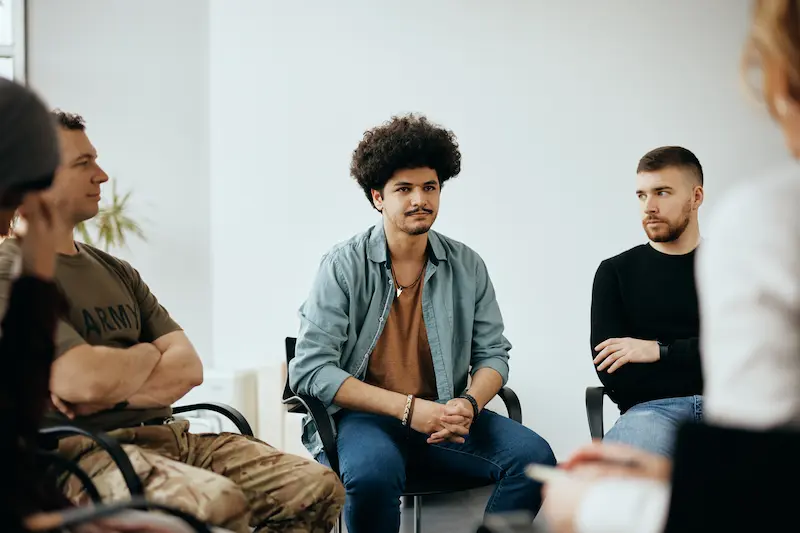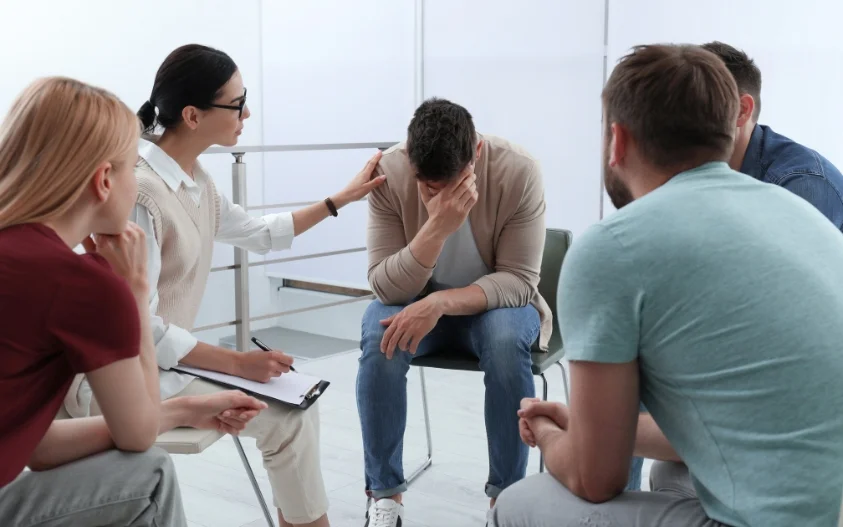24/7 Helpline:
(866) 899-221924/7 Helpline:
(866) 899-2219
Learn more about Group Therapy centers in Warroad
Group Therapy in Other Cities

Other Insurance Options

Medical Mutual of Ohio

Optum

Magellan

BlueShield

CareFirst

Molina Healthcare

Aetna

Access to Recovery (ATR) Voucher

MVP Healthcare

Sutter

Sliding scale payment assistance

Private insurance

WellPoint

AllWell

Ambetter

Covered California

WellCare Health Plans

Carleon

BlueCross

Anthem
























































